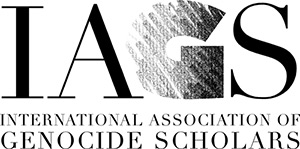Keynotes
Gloria Atiba Davies
Gloria Atiba Davies studied at the University of London and graduated with a Bachelor of Law (LLB Hons) degree. She then pursued the professional course at the Council of Legal Education in London after which she was called to the Bar of England and Wales by the Honourable Society of Grays Inn. After completing her studies, she returned to Sierra Leone, joined the government legal department and was assigned to the Division of Public Prosecution.
She worked her way up the ladder, interviewing victims and witnesses, drafting legal documents, conducting litigation in the High Court, the Court of Appeal and Supreme Court. She excelled as a criminal prosecutor and in 1994, was the most senior prosecutor in Sierra Leone, supervising prosecutions in the whole country, preparing pleadings and arguing criminal cases and appeals. She was also a member of the Task Force on Women and Children in Sierra Leone and the Legal Adviser to the Medical and Dental Council.
During the period 1999-2000, she worked in the Attorney General’s Chambers in Gambia first as the Deputy Director of Public Prosecutions and then as Acting Director of Public Prosecutions. She is currently Head of Gender and Children’s Unit, (at the International Criminal Court) which focuses on sexual and gender crimes and crimes against and affecting children, and also deals with issues relating to the well-being of witnesses especially victims of sexual violence and children who the OTP interacts with.
Keynote: The International Criminal Court - an essential instrument to render justice
Millions of children, women and men continue to be victims of unimaginable atrocities that shock the conscience of humanity. The International Criminal Court (ICC) was established based on a united belief that such grave crimes threaten the peace, security and well-being of the world, and from a global need to put an end to impunity enjoyed by perpetrators of those crimes. The Rome Statute which establishes the ICC makes a distinction between different crimes committed within different contexts, and expressly criminalises the crime of genocide, defined as acts committed with the intent to destroy, in whole or in part, a national, ethnical, racial or religious group. Individuals can be charged with genocide by killing, by causing serious bodily or mental harm and by deliberately inflicting on each target group conditions of life calculated to bring about the group’s physical destruction, as well as for having individual criminal responsibility for directly and publicly inciting others to commit genocide. In extension to the above, the Rome Statute criminalises rape, and the Office of the Prosecutor has committed to enhance investigations of sexual and gender-based crimes, and crimes against and affecting children. With the power to exercise its jurisdiction over persons for the most serious crimes of international concern, the ICC strives to promote the rule of law, protect human rights and bring justice to victims for acts of genocide, war crimes and crimes against humanity. It is through the co-operation between national, legal and international institutions that justice can be achieved for victims of crimes.
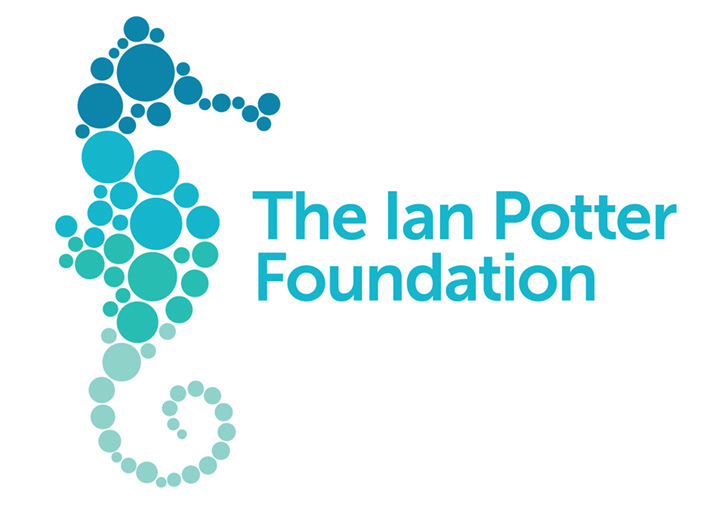
Funding for the IAGS2017 overseas keynotes is provided by an Ian Potter Foundation Conference Grant. The Ian Potter Foundation is one of Australia’s major philanthropic foundations. The Foundation makes grants nationally to support charitable organisations working to benefit the community across a wide range of sectors including the Arts, environment, science, medical research, education and community wellbeing. The Ian Potter Foundation aims to support and promote a healthy, vibrant and fair community for the benefit of all Australians.
Prof. Alexander Bellamy
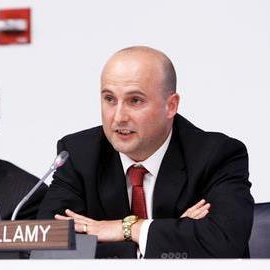 Alex Bellamy is Director of the Asia Pacific Centre for the Responsibility to Protect and Professor of Peace and Conflict Studies at The University of Queensland, Australia. He is also Non-Resident Senior Adviser at the International Peace Institute, New York and Fellow of the Academy of Social Sciences in Australia. In 2008-9 he served as co-chair of the Council for Security Cooperation in the Asia Pacific Study Group on the Responsibility to Protect and he currently serves as Secretary of the High Level Advisory Panel on the Responsibility to Protect in Southeast Asia, chaired by Dr. Surin Pitsuwan.
Alex Bellamy is Director of the Asia Pacific Centre for the Responsibility to Protect and Professor of Peace and Conflict Studies at The University of Queensland, Australia. He is also Non-Resident Senior Adviser at the International Peace Institute, New York and Fellow of the Academy of Social Sciences in Australia. In 2008-9 he served as co-chair of the Council for Security Cooperation in the Asia Pacific Study Group on the Responsibility to Protect and he currently serves as Secretary of the High Level Advisory Panel on the Responsibility to Protect in Southeast Asia, chaired by Dr. Surin Pitsuwan.
Dr Bellamy is co-editor of the Global Responsibility to Protect journal. His recent books include Responsibility to Protect: A Defence (Oxford, 2014), Providing Peacekeepers (with Paul D. Williams) (Oxford, 2013) and Massacres and Morality (Oxford, 2012).
Professor Bellamy is Senior Adviser at the International Peace Institute, New York and Fellow of the Academy of Social Sciences in Australia. His forthcoming book is "East Asia's Other Miracle: Explaining the Decline of Mass Atrocities" (Oxford University Press).
View Professor Bellamy's profile
Holding Back the Tide? Human Protection and Genocide Prevention in our More Violent World.
Over the past few decades the international community made significant progress towards strengthening the protection of civilians from genocide and mass atrocities. This was evidenced by consistent declines in the lethality of conflicts and one-sided atrocities. However, since 2011 the trends have moved in the other direction, creating a crisis in human protection that the system may not be able to cope with. This crisis, I will argue, is driven by three principal factors: (1) a significant increase in deliberate attacks on civilian populations; (2) a decline of international commitment to some of the central tenets of human protection; (3) the system’s limited capacity to respond effectively to the increasing burdens placed upon it. The lecture will begin by identifying the trends in civilian targeting before moving on to explain the sources of the current crisis. It will then examine ways in which this crisis of protection might be addressed, focusing in particular on ways of strengthening legal, political and moral accountability for the prevention of genocide and other atrocity crimes.
Prof. Robert Cribb

Professor Robert Cribb is a historian of modern Indonesia, with wider interests in other parts of Asia. He completed his BA at the University of Queensland and his PhD at the School of Oriental and African Studies in London. He has held positions at Griffith University, the Netherlands Institute of Advanced Study, the University of Queensland and the Nordic Institute of Asian Studies. His research focusses on the intersection between mass violence and national and political identities. He also writes on environmental politics and historical geography. His latest book, Japanese War Criminals: The Politics of Justice After the Second World War [with Sandra Wilson, Beatrice Trefalt, and Dean Aszkielowicz] will appear in 2017 with Columbia University Press.
Reckoning with Histories of Acute Violence in Asia
The war crimes trials of Japanese after the Second World War were the most ambitious attempt ever to reckon legally with the perpetrators of mass violence in Asia. Yet many observers believe the trials failed to achieve justice. Paradoxically the trails had been both as too lenient and as too harsh: too lenient because perpetrators escaped, too harsh because Japanese were the only Asians ever indicted for war crimes under international law, despite the atrocities perpetrated in subsequent conflicts. Japan's position in this respect is curiously like that of the Indonesian Communist Party (PKI). Driven, like Japan's leaders, by political desperation, party leaders launched a desperate strike against a much more powerful enemy. Savage retaliation followed, bringing death and suffering upon vast numbers of people who had no role in the decision to attack. The aftermath of the defeat of both Japan and the PKI was political discrimination against survivors and their descendants. Japan and the PKI were punished for failed grabs for power, Japan substantially, the PKI savagely; both still face accusations of enduring historical guilt which are deployed to restrict or disqualify them from political participation. Both have responded ineptly to these accusations with forms of denialism. The example of Germany suggests that embracing guilt may be the only way forward.
Prof. Lyndall Ryan
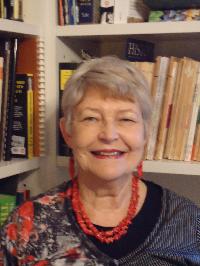
Lyndall Ryan is Conjoint Research Professor in the Centre for the History of Violence at the University of Newcastle, Australia. Her first book on the Tasmanian Aborigines was published in 1981, with an updated second edition in 1996. With the title, Aboriginal Tasmanians, the key argument was that the Tasmanian Aborigines had not died out in 1876 or at any other period in history. In 2002, she was a key target in the Aboriginal history wars which claimed that she had invented frontier massacres of Tasmanian Aborigines during the Black War of the 1820s. Re-reading the sources, she found that the Tasmanian Aborigines were more likely killed in mass killings of five or more, than in ones and twos.
Since then she has focussed on the new field of massacre studies with a special interest in the study of frontier massacre in colonial settler societies. Her most recent books include Tasmanian Aborigines A History since 1803 (2012), and the co-edited collection with Philip G. Dwyer, Theatres of Violence Massacre, Mass Killing and Atrocity throughout History (2012). She currently holds two Australian Research Council (ARC) Discovery Grants: (i) frontier violence in Australia 1788-1960 which will include a digital map of Aboriginal massacre sites in eastern Australia; and (ii) violence and intimacy in settler societies on the Anglo-Pacific rim 1830-1930. She is also completing a comparative study of colonial frontier violence in old and new empires 1780-1830, with Philip Dwyer, Barbara Mann and Nigel Penn.
Keynote abstract
The trouble with genocide in Tasmania: a review of recent debates
In 2005, Ann Curthoys published a ground breaking article on Raphael Lemkin’s chapter on Tasmania in his unfinished history of genocide where he claimed that genocide best described the process that led to the virtual extinction of the Tasmanian Aboriginal people. And although Lemkin was the first to use the word, ‘genocide’, he was simply following in the footsteps of illustrious predecessors such as James Bonwick in 1870, Mark Twain and HG Wells at the end of 19th century and Clive Turnbull in 1948 who each used the word ‘extermination’ to describe the process of ‘extinction’.
Today the terms, ‘Tasmanian Aborigines’, ‘genocide’, ‘extermination’ and ‘extinction’ are so intertwined that they appear to form a symbiotic relationship, whereby none can exist without the others. The relationship is deeply problematic for some historians who argue that genocide is simply the obverse of the discourse of extinction that was deployed by the proponents of scientific racism for more than one hundred years to justify the virtual disappearance of the Aboriginal people of Tasmania.
This paper untangles the historiographical debate about genocide in Tasmania since 2005 by locating it within the context of British imperial history. In taking this approach the paper it will generate a wider, more critical engagement with the reality of Tasmanian colonial history at a time when the discourse of humanitarianism dominated the British imperial agenda of expansion and conquest.
William Smith AM
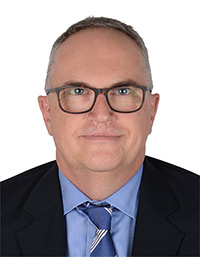
William Smith is the Deputy Co-Prosecutor of the Extraordinary Chambers in the Courts of Cambodia (ECCC). The ECCC is mandated to bring to trial senior leaders of Democratic Kampuchea and those most responsible for crimes committed under the Khmer Rouge regime between 1975 and 1979. He has held this position since the court was established in 2006. For the preceding 11 years, William worked as a trial attorney and legal officer at the International Criminal Tribunal for the Former Yugoslavia (ICTY). In 2000, William was seconded to the UN Transitional Authority in East Timor as the Acting District Administrator of Viqueque District. His work has taken him all over the world, including to the Balkans, Rwanda, Senegal and Northern Ireland. He was awarded a Member of the Order of Australia (AM) for significant service to the law, particularly through international justice tribunals and human rights organizations.
Raised and educated in Adelaide, South Australia, William joined the South Australian Police Force where he worked for seven years, primarily as a police prosecutor. Following this, he studied law and arts at Adelaide University, graduating in 1993 while also working for the Office of Director of Public Prosecutions. William worked as a barrister and solicitor in Adelaide before joining the ICTY in 1996. In 1999, he received a Masters in International Law from Leiden University, the Netherlands.
Justice for Genocide in Cambodia - The Case of the Prosecution at the ECCC
In 2006, over 30 years after the Communist Party of Kampuchea “CPK” aka “Khmer Rouge” came to power in Cambodia, an internationalized hybrid court commenced its investigations to bring to trial senior leaders and those most responsible for the crime of genocide, crimes against humanity and grave breaches of the Geneva conventions alleged to have been committed in Cambodia between 1975 and 1979. In the CPK’s aim to revolutionize Cambodia by turning its society into a communist agrarian model, at least 1.7 million people are alleged to have been killed, through execution, overwork, starvation and sickness. Vast numbers of Cambodians were forcibly married and raped in order to rapidly increase the population to defend the country and achieve the unrealistic agricultural and infrastructure goals set by the CPK.
Now in its 11th year, the ECCC has just completed the evidence hearings and closing arguments in it’s third trial where Nuon Chea and Khieu Samphan have been tried for the crime of genocide, crimes against humanity and grave breaches of the Geneva Conventions. William Smith, will provide an overview of the case with particular focus on the alleged genocide and crimes against humanity concerning the different victim groups, the nature of the prosecution evidence, defences presented and the overall challenges encountered during the process.

Funding for the IAGS2017 overseas keynotes is provided by an Ian Potter Foundation Conference Grant. The Ian Potter Foundation is one of Australia’s major philanthropic foundations. The Foundation makes grants nationally to support charitable organisations working to benefit the community across a wide range of sectors including the Arts, environment, science, medical research, education and community wellbeing. The Ian Potter Foundation aims to support and promote a healthy, vibrant and fair community for the benefit of all Australians.
Dr Lilla Watson
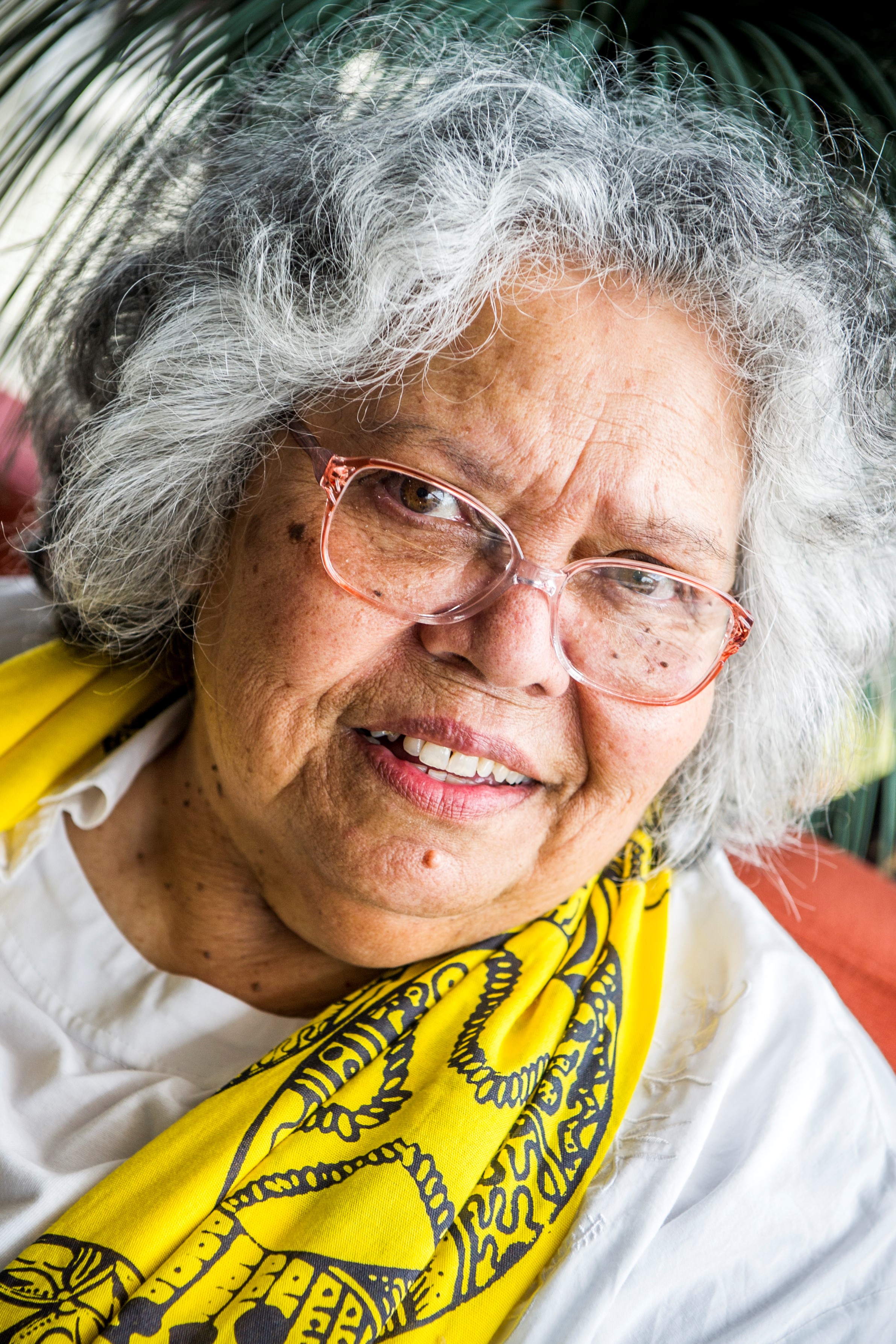
Dr Lilla Watson (also known as Aunty Lilla Watson) holds a wealth of knowledge on Aboriginal education, knowledge and culture. She has dedicated her career to educating others, both on national and international platforms. She is the Co-Founder of The BlackCard, an organisation based in Brisbane which aims to create a society that includes us all in a meaningful and productive way by people working more effectively with First Nation people and each other.
Lilla holds a Bachelor of Arts, and has contributed greatly to the world of academia, publishing a host of papers on Indigenous issues and being a key note speaker at several monumental events including – the National Conference on Higher Education, the International Feminism: Towards 2000 Conference and the Anti-Discrimination Commissions’ and the ‘Co-operation out of Conflict’ conference.
Lilla has worked across the country, with several universities, as a visiting fellow lecturer. Her essential work in Aboriginal studies, also prompted an honourable invite for her to present her academic paper at the World Conference of Indigenous Peoples’ Education in Canada. Lilla has developed and taught core university subjects such as ‘Aboriginal Perspectives’ for the University of Queensland, and in partnership with Mary Graham, developed ‘Aboriginal Approaches to knowledge’.
Lilla was instrumental in the development of the renowned LinkUp agency, tasked with the responsibility of reuniting Stolen Generation Children. She has been an advocate and supporter for the Aboriginal Tent Embassy, Tribal Council and several Murri youth programs. Lilla has also provided dedicated support to Woodford Prison, teaching and counselling Murri prisoners, as well as serving as a member of the Parole Board for Corrective Services. Lilla has also devoted her time to serving on other boards including: The Queensland Art Gallery, The Senate of Queensland University and the Board of the State Library.
Aboriginal Peoples' Hearings on Truth and Conciliation for Justice
The ideas in this paper are offered to colonised peoples everywhere who wish to empower themselves culturally and to achieve justice based on their own terms of reference.
We all live in a modern world and nowadays we are positioned to take advantage of modern technology in pursuit of our goals of Land Rights and Justice based on our Aboriginal Terms of Reference.
This paper outlines a way in which Aboriginal people in Australia can utilize modern technology to have our voices heard in order to bring about a more just society in this country.

